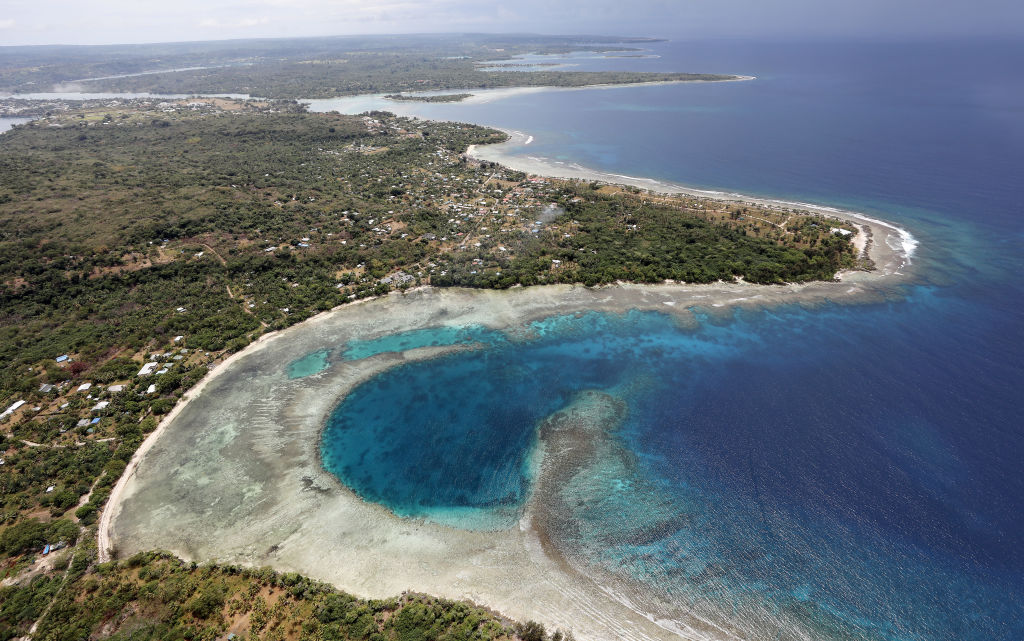
Planet A
Australia will be one of more than 100 states to co-sponsor Vanuatu’s historic resolution at the UN General Assembly calling on the International Court of Justice to provide an advisory opinion on nations’ legal obligations to address the climate crisis.
Backing Vanuatu’s bid reinforces Australia’s solidarity with the Pacific islands. It acknowledges the importance of placing Pacific island voices at the centre of international debates on climate change given the disproportionate and existential threat it poses to them.
Parallel to this, Australia is taking steps to increase climate resilience in the region, including providing support to cyclone-struck Vanuatu, enhancing early warning systems in the Pacific, introducing domestic legislation to reduce greenhouse gas emissions, and bidding to co-host the UN’s climate summit with Pacific island nations in 2026. While gaps remain, recent developments mark a significant shift from Australia’s past slow-walk on climate change that strained relations with its Pacific island neighbours.
Democracy watch
Thousands of Mexican citizens have taken to the streets to protest against a new law targeting the National Electoral Institute, which has played a pivotal role in fostering a pluralistic democracy in Mexico. Legislation passed by the Mexican Congress would significantly reduce the agency’s budget and staff. Opponents contend that the changes are unconstitutional and will weaken the country’s electoral system and increase the risk of disputes in next year’s presidential elections.
Mexico is grappling with significant challenges, including a struggling economy, high levels of crime and violence, and an expanding drug trade. Despite the government’s insistence that the electoral overhaul is necessary to strengthen democracy, many Mexicans remain sceptical and fear it could lead to greater authoritarianism and undermine democratic institutions.
The legislation is likely to be challenged in Mexico’s Supreme Court. Protesters have called for further demonstrations hoping to fill Mexico City’s main square, which holds considerable political significance as a protest site and borders the presidential palace.
Information operations
Pro-Beijing informers allegedly faked the identities and credentials of two Reuters journalists to engage with a Chinese-language Telegram channel protesting China’s strict Covid-19 controls. The two sought sensitive details about links to the Citizens Daily group, which circulated protest art during anti-censorship demonstrations in November.
In February, an Australia-based Chinese activist and dissident artist known as Badiucao exposed the fake accounts on Twitter. The subterfuge is the latest in a series of coercive campaigns undertaken by suspected Chinese Communist Party agents and sympathisers.
In January, it was reported that an unidentified person also claiming to be a Reuters journalist tried to infiltrate a Telegram channel of Hong Kong expats wanting to join the British Army. The attempt was made a week before the group was to hold an online seminar and may have put army recruits at risk.
Follow the money
The US Treasury has imposed sanctions on 14 companies and individuals for their alleged involvement in Iran’s shipping and petrochemical industries, which the US claims provide funding for Tehran’s missile program. The sanctions are part of a broader effort to put pressure on Iran, addressing concerns over its nuclear program, human rights record and alleged support for terrorism.
The announcement comes amid stalled diplomatic efforts to resolve tensions between Iran and the US. Under Donald Trump’s administration, the US withdrew from the Iran nuclear deal in 2018 and reimposed sanctions. The sanctions have impacted Iran’s economy, but it’s suggested that they alone won’t be sufficient to deter its regime.
Terror byte
ASIO Director-General Mike Burgess has warned that Australia remains a potential terrorist target despite last year’s decision to lower the terror threat assessment level from ‘probable’ to ‘possible’. Speaking about Australia’s counterterrorism efforts as part of ASIO’s annual threat assessment, Burgess said that the radicalisation of individuals through the spread of extremist content online was a key challenge.
Burgess took the opportunity to urge the media and counterterrorism experts to refrain from making quick judgements about attackers’ motivations, citing the tragic killing of two Queensland police officers last year. ‘We believe the shooting was an act of politically motivated violence, primarily motivated by a Christian violent extremist ideology,’ he said, adding that ASIO ‘did not find evidence the killers embraced a racist and nationalist ideology’.
Australia will broaden its collaboration on combating terrorism in the Indo-Pacific through a new working group announced at last week’s Quad foreign ministers’ meeting. The initiative will involve cooperation between the Quad countries and Indo-Pacific partners to counter new and emergent terrorist threats.

